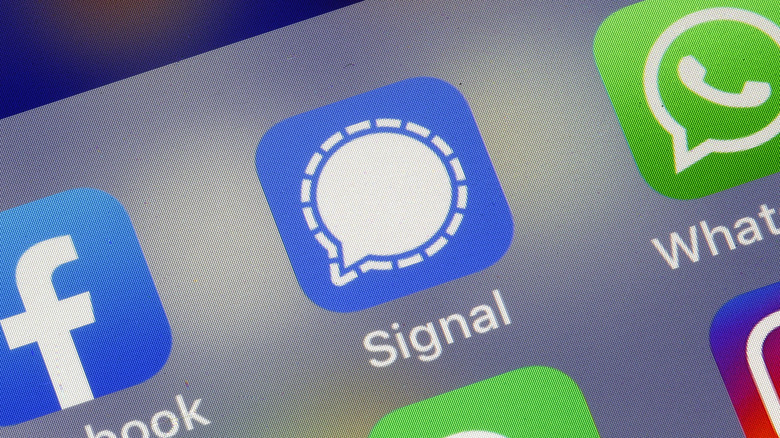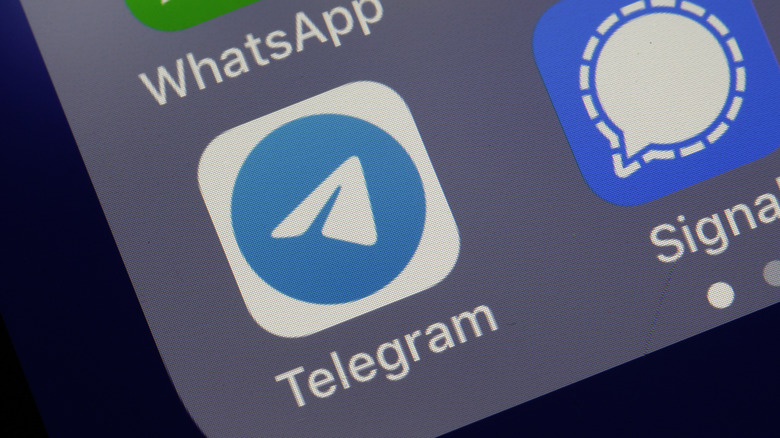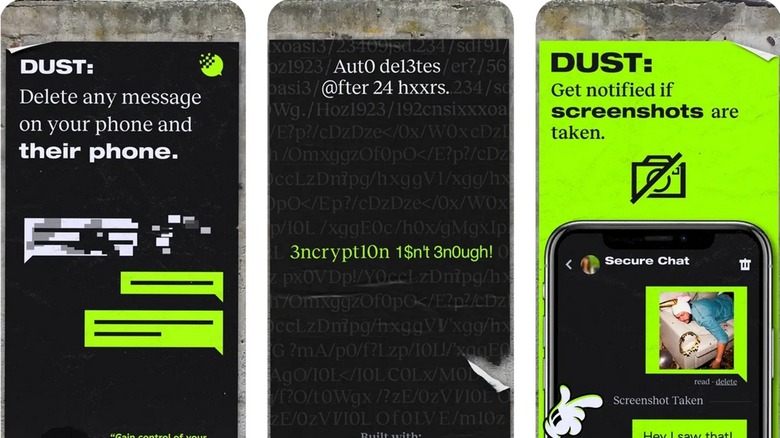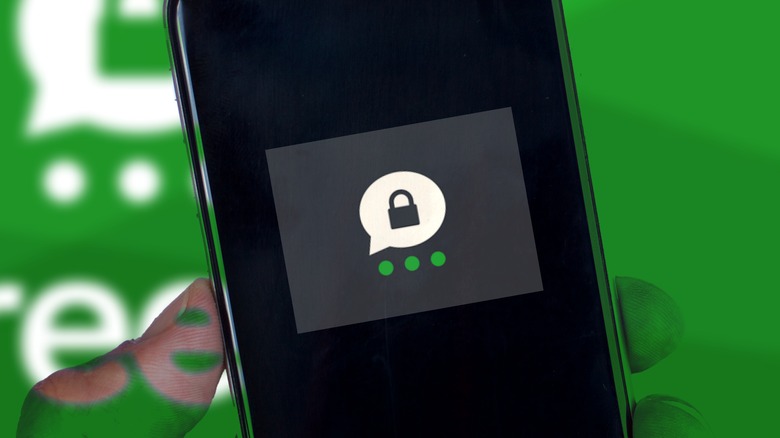These iPhone Apps Let You Hide Messages And Chat Privately
iPhone users have a plethora of options when it comes to messaging apps, from the ubiquitous and native iMessage, to the widely used Facebook Messenger and WhatsApp. While these services are end-to-end encrypted (some not by default) and quite secure, not all of them offer privacy features such as the ability to hide your messages or set them to disappear after a specific duration or after they are viewed once, to name a few.
These kinds of privacy messaging features can be useful in many cases, such as if your iPhone is being used by more than one person or you want to chat privately, as well as to ensure your messages aren't being saved by recipients for potential misuse. All the secure messaging apps listed by us are also available for Android, enabling cross-platform communication — meaning you can chat with your contacts regardless of which smartphones they're using. All the iPhone privacy messaging apps on this list are free for consumers, barring Threema. Beyond what they offer, these apps are also recommended as secure messaging apps by various independent cybersecurity firms, such as Norton, Avast, and AVG.
Signal
Signal has end-to-end encryption (E2EE) based on the open-source Signal Protocol, enabling it to offer encrypted calls and chats. It has a variety of privacy features, such as disappearing messages and view-once media, and it even prevents screenshots from being taken. The developer behind the app also claims that there is no tracking or sharing of user data, and no ads or affiliate marketing. Signal also offers proxy support.
Signal is recommended for use by the U.S. military, and the developer claims that its app is often used by U.S. senators and their staff, as well as American allies in the EU Commission. Apart from iOS, iPadOS, and Android, Signal is also available for macOS, Windows, and Linux. Note that to use the desktop app, users will first have to install the app on their smartphone. This is because, despite the numerous security features it offers, it requires a phone number to use — unlike Threema. For a detailed look at Signal, see our guide on everything you need to know about the app.
Telegram
Telegram offers end-to-end encryption like other privacy-centric apps, but only in what it calls "Secret Chats," not in regular one-on-one or group chats. These encrypted chats stay on the users' devices and can be set to self-destruct. Since they are device-specific, they can only be accessed on the devices that were used during the conversation — if you sign out of your device, the chat will be lost.
As for those chats that aren't end-to-end encrypted, Telegram says that it uses a distributed infrastructure to store cloud chat data and decryption keys, requiring multiple court orders from different jurisdictions for any request for user data. At the time of writing, the company has disclosed "0 bytes of user data to third parties, including governments," it claims.
Telegram is not part of a family of companies like WhatsApp and Facebook Messenger (both owned by Meta), and it doesn't share user data with any sister companies. Apart from iOS, iPadOS, and Android, Telegram is available for macOS, Windows, and Linux desktop users as well. For detailed information about Telegram, check out our explainer.
Dust
Formerly known as Cyber Dust, this secure messenger app — now named simply Dust – lets users send "Dusts" as private messages to contacts. These messages can be set to self-destruct within 24 hours or after being read by the recipient. It also has a feature called Blasts that lets users share pictures and text with their followers — the data expires after 24 hours. The company also claims that most messages are stored in the smartphone's RAM, not its storage. This way, there is no data permanently stored on phones or servers, and this also means there is no chat history.
Other privacy features include screenshot alerts, the ability to delete messages for everyone at any time, and its brand of end-to-end encryption. There's also "Watchdog," which notifies users if their data was compromised in a security breach on another service, and an encrypted "Stealth Search" feature that lets you search the web with no tracking. Unlike Signal and Telegram, it is not available for desktop platforms.
Threema
The only paid app on this list, Threema requires you to pay a one-time fee of $4.99 for lifetime access. It requires no phone number or email address to use and instead relies on a Threema ID that's assigned to you when you start the app for the first time. It also has open-source end-to-end encryption for all communication (including group chats, media files, and status messages).
The company also touts privacy features like no ads and tracking, automatic chat deletion, and decentralized architecture, as well as the fact that it's completely GDPR compliant. Threema also boasts that users don't need to sync their contacts in order to use the service — it is optional for user convenience. Threema is available for iOS, iPadOS, Android, macOS, Windows, Linux, and on the web. Just like Signal, it requires desktop users to install the app on their mobile phones. It is also usable on Android Wear and Apple Watch, but with slightly limited functionality.




